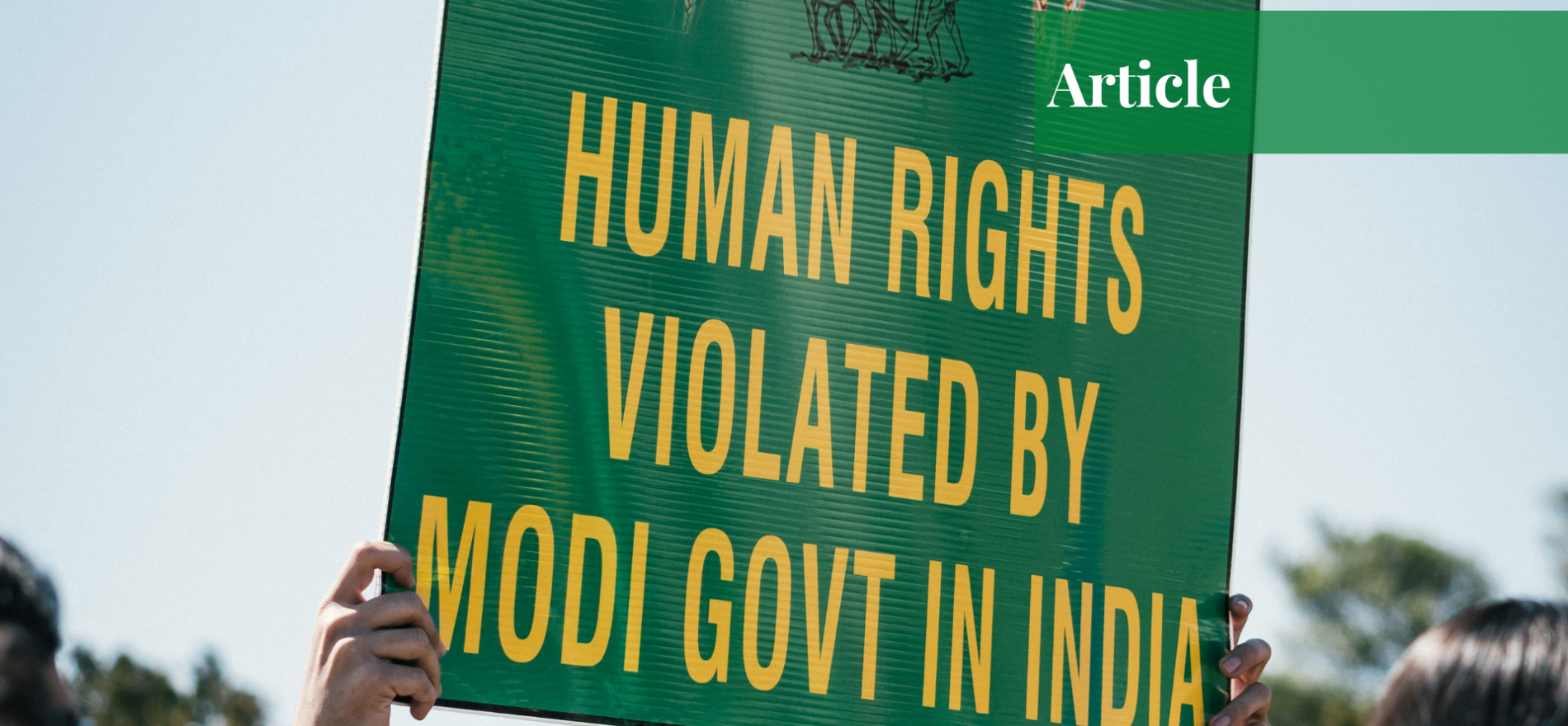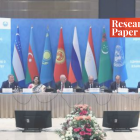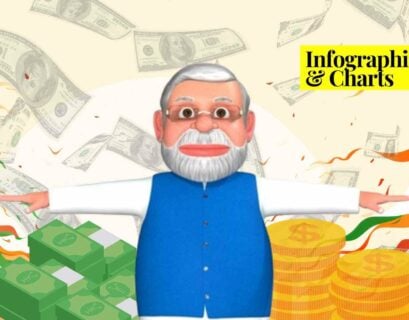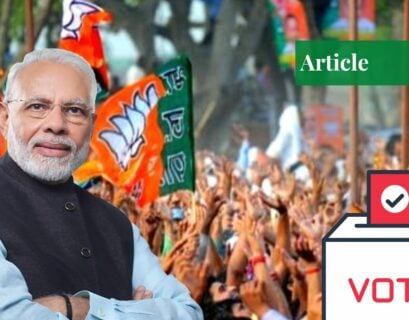Mr. Uzair Bin Farid completed his undergraduate degree from Quaid-e-Azam University before pursuing his Master's in Economics from IBA Karachi. He has a keen interest in IR, global politics, and strategic issues.
The Democracy Violating Human Rights
To the world, India is the world’s largest democracy but under this democracy, the Kashmiris of Indian Occupied Kashmir, and the farmers of India are being exploited, deprived of their rights. The state, under the leadership of Narendra Modi, has not only revoked article 370 of the Indian constitution but also introduced new farm bills which exploit the Indian farmers, causing protests to break out on the streets of India.
Moreover, Kashmiris have been waiting for 73 years for their right to self-determination to be granted. It was initially granted to them by the International Society of States, represented by the United Nations. But for one reason or the other, this right has proven to be illusory for the people of Kashmir.
Meanwhile, they have seen a continuous deterioration of their fundamental rights at the hands of the Indian government. More so, the recent revocation of the articles protecting the special status of the Jammu and Kashmir valley is a step towards the beginning of a long-coveted logical conclusion to this problem, albeit, in the wrong manner.
Modi’s Nationalist Regime
In recent years, the world has seen a surge in nationalist sentiment around the world. Not only in the global south do we see a deterioration of civil liberties at the hands of a dominant majority but in western states too, this trend towards far-right nationalism is ascending. It has been on peculiar display in India.
It manifested itself in the acquisition of power by the ultra-nationalist Modi regime, and in Prime Minister Narendra Modi’s aggressive diplomatic campaign to find friends on the global stage. This seemed to lend credence to his policies at home and to the acceptability of his government in foreign capitals. It helped in portraying India in the world as an indispensable partner for many countries, not only in the West but also in the Middle East.
By winning leaders over to his side, the Indian head of state was able to impress upon world leaders that India was indispensable for them in their fight against Chinese communism. Not only would India be a reliable partner in the conflict against China, but it would be touted as being a liberal democracy open to market principles grounded in democratic values.
The Inconsistencies in Indian Policy Choices
When following an example from the West, we in the East, often forget the perennial differences of oriental and occidental worlds. We forget the differences between our worldviews, values, cultures, and statecraft principles, and theirs. This ultimately leads to an incoherent piecing together of economic policies and political choices which may not be so rewarding after all.
Here it is important to mention two such inconsistencies in Indian policy choices that may portend a future rife with conflict and instability. The first is the Kashmir problem and the second is the farm laws passed by the Indian legislature. Before we turn to the first problem, let us discuss the second problem.
The Indian Farm Laws
The farm bills passed by the Modi government have brought the private sector into the agricultural market. This has been done in line with the market-friendly policies of deregulation, indicative of the Reagan-Thatcher neoliberal doctrine. By bringing in the corporate entities, these laws have essentially eroded the price security the farmers had for their produce.
Now the market is open for private firms to enter. They can make deals with farmers on their own terms with no protection for the latter. This lack of protection has made them feel insecure and exploited by the very state that’s meant to ensure their rights; this insecurity, along with the unreliability of the state’s farm bills, has led the farmers to take part in protests all over India.
The regulated spaces for wholesale trade, known as “mandis”, have been stripped of their exclusive status. Previously, these “mandis” were considered a regulated market for selling produce. Now independent buyers can meet the farmers outside this market to demand their own price. The bills have also removed the limit on storage of the products, giving middlemen the power to dictate prices.
All of this is fairly technical and legal but the fact of the matter is that farmers are out on the highways of India, in thousands, if not in hundreds of thousands, hoping that their protests will make the government change its mind about the farm laws. One stark observation is that almost all of them wear turbans of various colors. This indicates that the Sikh community is set to lose the most if these laws are not revoked.
India is a country of 1.4 billion people. Almost 50% of its population is employed in the agricultural sector. Over the years, the conditions of farmers have deteriorated for multiple reasons, resulting in a soaring suicide rate among farmers. The traditional system of a regulated market and auctioned prices worked for most of the farmers in India, mainly for those living in Punjab and Haryana, hence, why they felt no need for protests in the past.
If the farmers in India are on the roads, taking part in protests with a fervor for the revocation of these laws, it tells us something. They feel vulnerable at the hands of these market-oriented laws. While the market-oriented principles of deregulation may not be so much of an aberration in themselves, their application to the peasants may not be such a good option after all.
The Kashmir Issue
Kashmir is a predominantly Muslim region in the northwest of India. It has been at the center of India-Pakistan relations since both countries got their independence. The successive governments of India and Pakistan have failed to peacefully resolve the Kashmir problem. People on the Indian side of Kashmir had felt some sort of security in a sense due to the “special status” given to their disputed valley in the Indian constitution.
They had relative autonomy to go about their internal affairs. So, this gave them hope that someday they will be able to exercise their right to self-determination. But soon after winning his second term in office, Modi’s government revoked the special status of the Indian Occupied Kashmir (IOK), complemented with a brutal clampdown in the valley by deploying hundreds of thousands of additional troops.
People have been subjected to curfews with a total blackout of the internet, with no information going in or out of the valley. The region has been highly militarized. The use of force by a government, to put it simply, is like putting pressure on the nib of a pen until it breaks. Muslims of the occupied Kashmir have resisted in the past against the lingering problem of their self-determination. The movement in the 90s saw around 100,000 people die at the hands of the occupation forces.
The manner in which the Modi regime is trying to bring Kashmir into its mainstream national fold is only adding fuel to the fire. Changing laws through which Hindus from other parts of the country can buy land and property in Kashmir will create resentment among Kashmiri people, which will be hard for the Modi regime to contain.
The pro-independence sentiment is very much alive on the Indian side of Kashmir. The problem here, which must be of concern, is that the Modi regime is a manifestation of the nationalist-ideological stream which has been the source of bloodshed in the past. In the interbellum period of the two world wars and during World War II itself, this ethnic-nationalist sentiment was used to justify the Holocaust. The application of the same principles of nationalist exclusivity may not work for the Modi regime.
In the case of Kashmir, its geography and demography will not allow Modi and his nationalist junta to be successful in their endeavors. This matter will certainly come to a head. When that moment arrives, Prime Minister Modi will not find readymade solutions to the problems of his own making. Simply ignoring the existence of a million Muslims in Kashmir and using force to subjugate them, is like putting your hand in the mouth of a tiger.
The world has come a long way since the colonial administrations created territorial problems and disputes in the wake of their “shameful flights”. The lingering problems of associating terrorism with Muslims and the crises in the Middle East might result in a resurgence of Islamic nationalism in parts of the world where Muslims have been subjected to brutality and oppression, for quite some time now.
The Palestinian Great March of Return is only a subtle manifestation of righting historical wrongs. If the Kashmiri youth start viewing themselves as part of a transnational-Muslim ummah, subjected to the same line of oppression as the Palestinians at the hands of Israel, then it may turn out to be a hot water ocean for India.
Not all of the people in Kashmir would go down without a fight, this is not what history tells us. If an insurrection in Kashmir erupts, it will not be of a limited scale this time, given the atrocities inflicted on Kashmiris. A million Kashmiris is not a small number; if an implosion occurs in the valley, it might give cause to other ethnic minorities in India who have felt marginalized at the hands of the Hindu majority. The people involved in the farmers’ protests in India may find a common cause with the Kashmiri Muslims. When a fight erupts, old wounds and old grievances also resurface.
What This Means for India
The rise of inequality and the vulnerability of the global economic and financial system—laid bare in the aftermath of the Global Financial Crises of 2008 and now in the wake of the Covid-19 pandemic—has many lessons for countries like India and Pakistan. A system that has worked in the West, which was never a historically traditional society built on the back of farmers, may not be a good option for India to choose.
The nationalist and ideological policies of suppressing people also bring bloodshed in their wake. The two steps of deregulating the agricultural sector and using force to bend the will of people may as well serve to be the causes of prophetic doom. The Modi regime is walking a very fine line here.
It is not only adding fuel to the fire of the peasants’ anger but simultaneously playing with religious hatred and fanaticism. If it blows up, it could very well signal the end of India as we know it, with very stark consequences for the global capitalist doctrine. The Modi regime has decided to bring home the fire which we so often see burning the countries in the Middle East and Africa.
The Shah of Iran might not have thought that he would be toppled in a revolution. Yet, the Iranian revolution made it clear to both the Shah and Washington that often things we do not prepare for, can happen. Covid-19 serves as the latest example of this. If you think that the worst can not happen then either you are fooling yourself, or you have a desire to expedite the coming age of prophetic doom.
If you want to submit your articles and/or research papers, please check the Submissions page.
The views and opinions expressed in this article/paper are the author’s own and do not necessarily reflect the editorial position of Paradigm Shift.



















